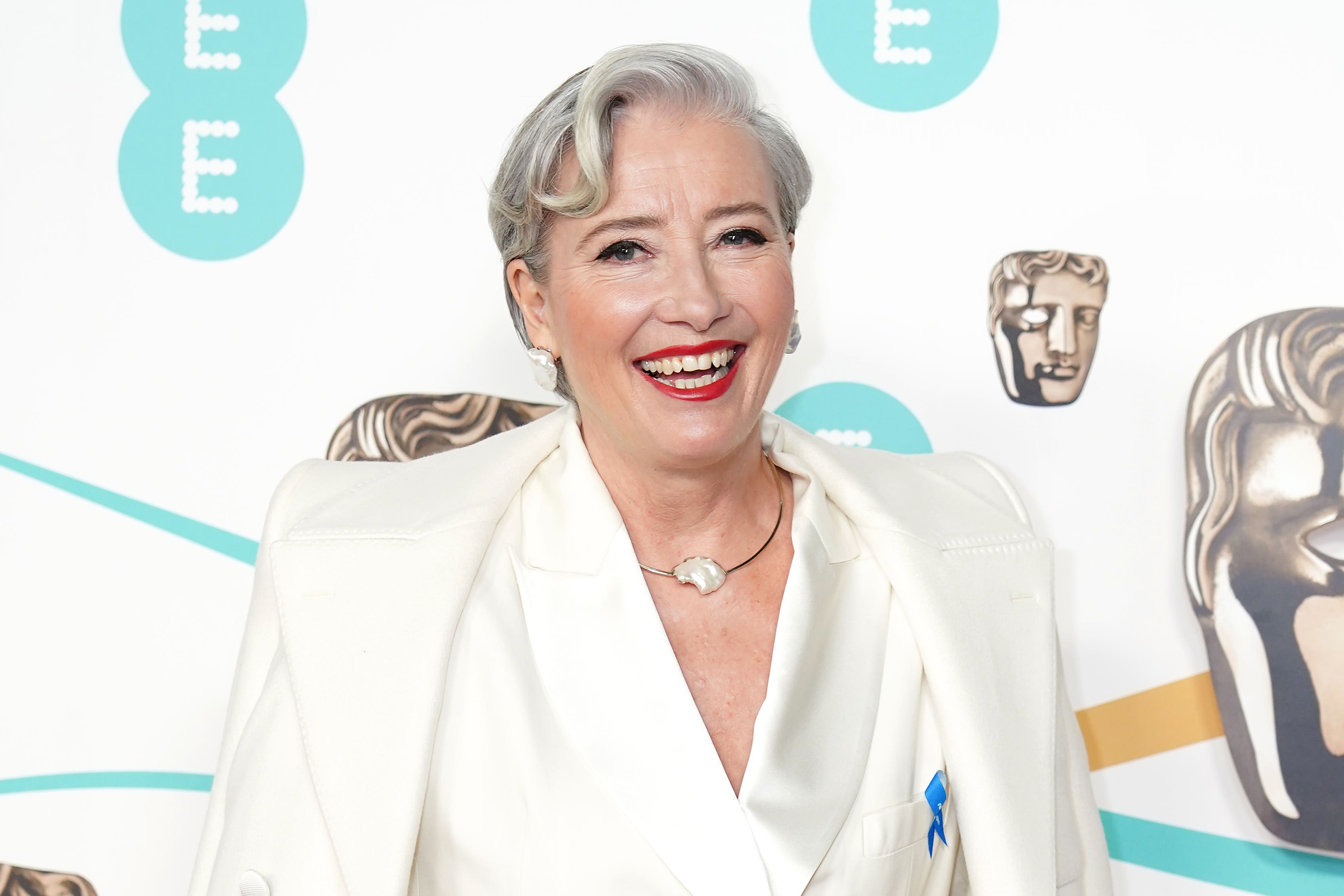Dame Emma Thompson hits out at creative work being labelled ‘content’
The Oscar-winning actress made her comments at the Royal Television Society Cambridge Conference.

Your support helps us to tell the story
From reproductive rights to climate change to Big Tech, The Independent is on the ground when the story is developing. Whether it's investigating the financials of Elon Musk's pro-Trump PAC or producing our latest documentary, 'The A Word', which shines a light on the American women fighting for reproductive rights, we know how important it is to parse out the facts from the messaging.
At such a critical moment in US history, we need reporters on the ground. Your donation allows us to keep sending journalists to speak to both sides of the story.
The Independent is trusted by Americans across the entire political spectrum. And unlike many other quality news outlets, we choose not to lock Americans out of our reporting and analysis with paywalls. We believe quality journalism should be available to everyone, paid for by those who can afford it.
Your support makes all the difference.Dame Emma Thompson has said the film and TV industry needs to focus on telling “authentic” stories and not labelling creative work as just “content”.
The Oscar-winning British actress appeared at the Royal Television Society Cambridge Conference on Thursday to discuss the industry on both sides of the Atlantic and to consider the future of talent and creativity.
During the session, she also expressed her views of the US actors’ and writers’ strike and how she feels executives and creatives need to work more closely together.
When I hear people talk about content, it makes me feel like the stuffing inside a sofa or cushion. Just kind of some stuff. It's just rude actually ... it's just a rude word for creative people
Reflecting on how she felt one engaged an audience, she said: “What is authentic, whether you like it or not, is going to be meaningful to somebody. You find your audience by being completely authentic.”
She added that going into a project with a preconceived formula to try and extract an emotion did not work, and argued that if it did then “you sit there and you watch them and you wonder why, at the end of it, you feel a bit ill”.
“And I think that’s something else that we don’t talk about as creators in television and in film – how does it make us feel inside ourselves after we’ve seen something?” she said.
I want to feel different after I’ve watched something. I don’t want to feel the same way. I want to feel as though I’ve been shifted slightly, even if it’s just my mood or I’ve learned something extraordinary
The actress, who won an Oscar for her role in 1993’s Howards End and 1996’s Sense And Sensibility, added: “I want to feel different after I’ve watched something.
“I don’t want to feel the same way. I want to feel as though I’ve been shifted slightly, even if it’s just my mood or I’ve learned something extraordinary.
“That is something we just have to keep on thinking about it because that takes you away from this thing of ‘content’. What is the story that you want to hear and that you want to tell, that you think will make people feel different, safer, stronger?”
Dame Emma branded the term “content” as “rude”, explaining: “When I hear people talk about content, it makes me feel like the stuffing inside a sofa or cushion. Just kind of some stuff. It’s just rude actually … it’s just a rude word for creative people.
“I know there are students in the audience: You don’t want to hear your stuff, your stories described as ‘content’ or your acting or your producing described as ‘content’.”
She added that she thought it was a “misleading word” and an indication that the language used between executives and creatives needed to become more aligned.
“I think the relationship between the executive branch of television and the creative branch of television just has to be closer”, she added.
During the session, she also described the ongoing US actors’ and writers’ strikes as “so painful” as it impacted a host of creative groups within the industry.
Thousands of members of the Screen Actors Guild and the American Federation of Television and Radio Artists (Sag-Aftra) have been on strike for months after negotiations broke down with Alliance of Motion Picture and Television Producers (AMPTP).
I’ve been writing to friends who are crew people, who are costume people, who are make-up people, who aren’t working, so it’s a very, very hard time, people are suffering so much
They have raised concerns over a number of issues, including pay and the use of artificial intelligence (AI).
“I’ve been writing to friends who are crew people, who are costume people, who are make-up people, who aren’t working, so it’s a very, very hard time, people are suffering so much”, Dame Emma said.
“And it’s actually sort of hidden as well because there’s something about the words ‘an actors’ strike’ which doesn’t sound the same to people as ‘the doctors are on strike’ or ‘the miners are on strike’.
“It’s got a different feel to it because we don’t work all the time and I suppose that’s the point as we’re self employed, and I suppose that is also essential with regard to this, what we’re talking about here, the relationship between creatives, the people who write and act, music and create stories, and (those) that work in organisations like the executives do.
“It’s a different form of life, we live more job to job, we’re self-employed and that’s got to be talked about and the Rubik’s Cube of it has to be better.”